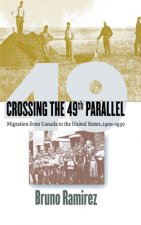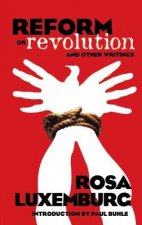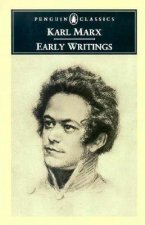
Kód: 04709199
Democracy Delayed
Autor Juan J. Lopez
With the dissolution of the Soviet Union, foreign policy analysts and international relations scholars expected communist Cuba to undergo transitions to democracy and to markets as had the Eastern European nations of the former So ... celý popis
- Jazyk:
 Angličtina
Angličtina - Väzba: Pevná
- Počet strán: 272
Nakladateľ: Johns Hopkins University Press, 2002
- Viac informácií o knihe

63.32 €
Dostupnosť:
50 % šanca Máme informáciu, že by titul mohol byť dostupný. Na základe vašej objednávky sa ho pokúsime do 6 týždňov zabezpečiť.
Máme informáciu, že by titul mohol byť dostupný. Na základe vašej objednávky sa ho pokúsime do 6 týždňov zabezpečiť.Prehľadáme celý svet
Mohlo by sa vám tiež páčiť
-

Liaisons dangereuses
50.73 € -

Cardiff and District 1890
5.41 € -

Selected Poems from Opened Ground: York Notes Advanced
11.14 € -5 % -

Customer-Driven Organization
61.37 € -

Crosby's Opera House
186.49 € -

Dialectic of Nihilsm - Post-Structuralism and Law
68.94 € -

Bent
18.61 € -

Multipreneurship
224.96 € -

Side by Side
8.99 € -23 % -

Culture, Conflict, and Counterinsurgency
85.93 € -

Crossing the 49th Parallel
93.50 € -

Active RC Filter Design
227.72 € -

Masculine of 'Virgin'
29.96 € -

Fates of Political Liberalism in the British Post-Colony
99.43 € -14 %
Darujte túto knihu ešte dnes
- Objednajte knihu a vyberte Zaslať ako darček.
- Obratom obdržíte darovací poukaz na knihu, ktorý môžete ihneď odovzdať obdarovanému.
- Knihu zašleme na adresu obdarovaného, o nič sa nestaráte.
Informovať o naskladnení knihy
Zadajte do formulára e-mailovú adresu a akonáhle knihu naskladníme, zašleme vám o tom správu. Postrážime všetko za vás.
Viac informácií o knihe Democracy Delayed
Nákupom získate 157 bodov
 Anotácia knihy
Anotácia knihy
With the dissolution of the Soviet Union, foreign policy analysts and international relations scholars expected communist Cuba to undergo transitions to democracy and to markets as had the Eastern European nations of the former Soviet bloc. But more than a decade after the fall of the Berlin Wall, Castro remains in power, with no sign that the Cuban government or economy is moving toward liberalization. In Democracy Delayed, political scientist Juan Lopez offers a searching and detailed analysis of the factors behind Cuba's failure to liberalize. Lopez begins by comparing the political systems of three Eastern European states-the former German Democratic Republic, Czechoslovakia, and Romania-with that of Cuba, in order to identify the differences that have allowed Castro to maintain his hold over the government and the economy. Lopez also shows the various conditions promoting change, including the development of civil society groups in Cuba, and discusses why some U.S. policies help the possibility of democratization in Cuba while others hinder it. While the Catholic Church in Poland and the Protestant Church in East Germany fostered change, the Catholic Church in Cuba has not taken a defiant stance against authoritarianism but seems instead to be biding its time until Castro is out of the picture. In conclusion, Lopez argues that a political transition in Cuba is possible even under the government of Fidel Castro. Some necessary conditions have been missing, but it is possible that U.S. policies could lay the groundwork for democratic charge.
 Parametre knihy
Parametre knihy
Zaradenie knihy Knihy po anglicky Society & social sciences Politics & government Political ideologies
63.32 €
- Celý názov: Democracy Delayed
- Podnázov: The Case of Castro's Cuba
- Autor: Juan J. Lopez
- Jazyk:
 Angličtina
Angličtina - Väzba: Pevná
- Počet strán: 272
- EAN: 9780801870460
- ISBN: 0801870461
- ID: 04709199
- Nakladateľ: Johns Hopkins University Press
- Hmotnosť: 499 g
- Rozmery: 229 × 152 × 21 mm
- Dátum vydania: 15. December 2002
Obľúbené z iného súdka
-

Capital
5.51 € -26 % -

The Communist Manifesto
3.57 € -24 % -

Irreversible Damage
23.42 € -22 % -

ALL NEW Don't Think of an Elephant!
13.29 € -18 % -

Introduction to the Three Volumes of Karl Marx's Capital
15.95 € -14 % -

Imagined Communities
16.15 € -15 % -

The Unabomber Manifesto
12.16 € -

The Communist Manifesto
2.34 € -

Mein Kampf
29.35 € -

Companion To Marx's Capital
24.75 € -21 % -

Reform or Revolution and Other Writings
14.31 € -23 % -

Liberalism
20.04 € -

Road to Serfdom
17.59 € -4 % -

State and Revolution
7.25 € -

The Rape of the Mind
14.62 € -

Blackshirts and Reds
14.82 € -19 % -

Coming Insurrection
12.27 € -20 % -

Economic and Philosophic Manuscripts of 1844
11.04 € -

Anarchism and Other Essays
14.01 € -19 % -

Fascism for the Million
29.96 € -

Early Writings
16.77 € -13 % -

Origins of Totalitarianism
34.36 € -

Poverty of Philosophy
10.12 € -

Tomas G Masaryk a Scholar and a Statesman
48.99 € -3 % -

Limits of Liberty -- Between Anarchy & Leviathan
27.20 € -

Fanged Noumena - Collected Writings 1987-2007
29.86 € -4 % -

Rules for Radicals
13.80 € -21 % -

Notes on Nationalism
3.57 € -24 % -

Psychopolitics
12.37 € -15 % -

Anatomy of Fascism
12.06 € -22 % -

Rights of Man, Common Sense, and Other Political Writings
7.97 € -22 % -

Communist Manifesto
5.82 € -22 % -

Communist Manifesto and Das Kapital
8.99 € -23 % -

Brief History of Neoliberalism
24.44 € -

Why Liberalism Failed
17.79 € -

Brainwashed
14.41 € -23 % -

The Virtue of Nationalism
27.92 € -16 % -

Real North Korea
14.41 € -23 % -

Capital
10.22 € -24 % -

Capital
20.45 € -12 % -

Fools, Frauds and Firebrands
15.74 € -19 % -

Post-scarcity Anarchism
16.46 € -18 % -

Communist Manifesto Illustrated
41.53 € -
![What Is to Be Done? [Burning Questions of Our Movement] What Is to Be Done? [Burning Questions of Our Movement]](https://media.libris.to/jacket/08800888t.jpg)
What Is to Be Done? [Burning Questions of Our Movement]
8.17 € -

German Ideology
18.51 € -12 % -

New Way Of The World
29.45 € -5 % -

On Anarchism
9.09 € -24 % -

Mein Kampf
30.89 € -13 % -

How to be a conservative
18.51 € -21 %
Osobný odber Bratislava a 2642 dalších
Copyright ©2008-24 najlacnejsie-knihy.sk Všetky práva vyhradenéSúkromieCookies


 21 miliónov titulov
21 miliónov titulov Vrátenie do mesiaca
Vrátenie do mesiaca 02/210 210 99 (8-15.30h)
02/210 210 99 (8-15.30h)